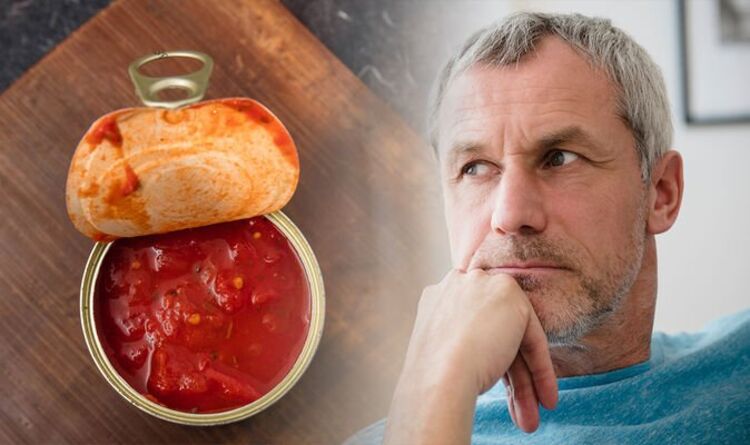Ukrainian children with cancer evacuate their hospitals to Poland
We use your sign-up to provide content in ways you’ve consented to and to improve our understanding of you. This may include adverts from us and 3rd parties based on our understanding. You can unsubscribe at any time. More info
The charity says: “No, eating fresh or tinned tomatoes does not affect cancer risk.
“Eating tinned tomatoes does not cause cancer. Some tins and cans are lined with something called Bisphenol-A (BPA). Eating food that has been stored in BPA-lined tins does not cause cancer”.
The charity continues: “Eating tomatoes doesn’t prevent cancer. Some studies have looked at whether eating tomatoes might help prevent prostate cancer. These studies focused on a chemical in tomatoes called lycopene.
“But there is no good evidence that lycopene reduces overall cancer risk or the risk of prostate cancer”.

While tomatoes may not prevent cancer from developing, importantly they do not necessarily increase a person’s risk of developing the condition.
On whether food can make a big difference, Tom Stansfeld, also of Cancer Research UK added: “Diet and cancer prevention is a complex issue with few black and white answers; we encourage everyone to eat a balanced diet which is high in fruit and vegetables and low in red and processed meat, fat and salt”.
Diet can make a difference as a result, just how big a difference appears not to be fully known; what is certain is that the healthier a person eats the healthier their body will be.
Although there is no evidence tomatoes reduce the risk of prostate cancer, it is a condition that more men should be aware of.
Prostate cancer is the most common cancer among men.
Despite this, it’s very difficult to treat.
This is because prostate cancer rarely causes any symptoms until it’s developed.
As a result, it’s very hard to catch it early; Prostate Cancer UK wants to help change that with a simple online checker.

Consisting of three questions, the online checker helps men to identify how at risk they are of developing prostate cancer.
If they are at particularly high risk it will be suggested by the checker that they go for a test that can detect whether they are likely to develop or have prostate cancer.
If a man gets diagnosed with prostate cancer when they have no symptoms, their chances of survival go up compared to if they were diagnosed later on.
The later a cancer is found and treated, the lower the chances of long-term survival.

It’s not just symptoms that play a role in men not being checked for prostate cancer; BBC Breakfast discussed society’s role too.
In recent years it has been recommended that women go for screenings to see if they’re at risk of developing cervical cancer and other dangerous conditions.
While women are encouraged to attend these screenings, men aren’t encouraged to get precautionary checks in the same way.
By encouraging men to become more aware of their risk and by attending medicinal screenings the lives of brothers, fathers, grandfathers, sons, and nephews could be saved.
Source: Read Full Article
